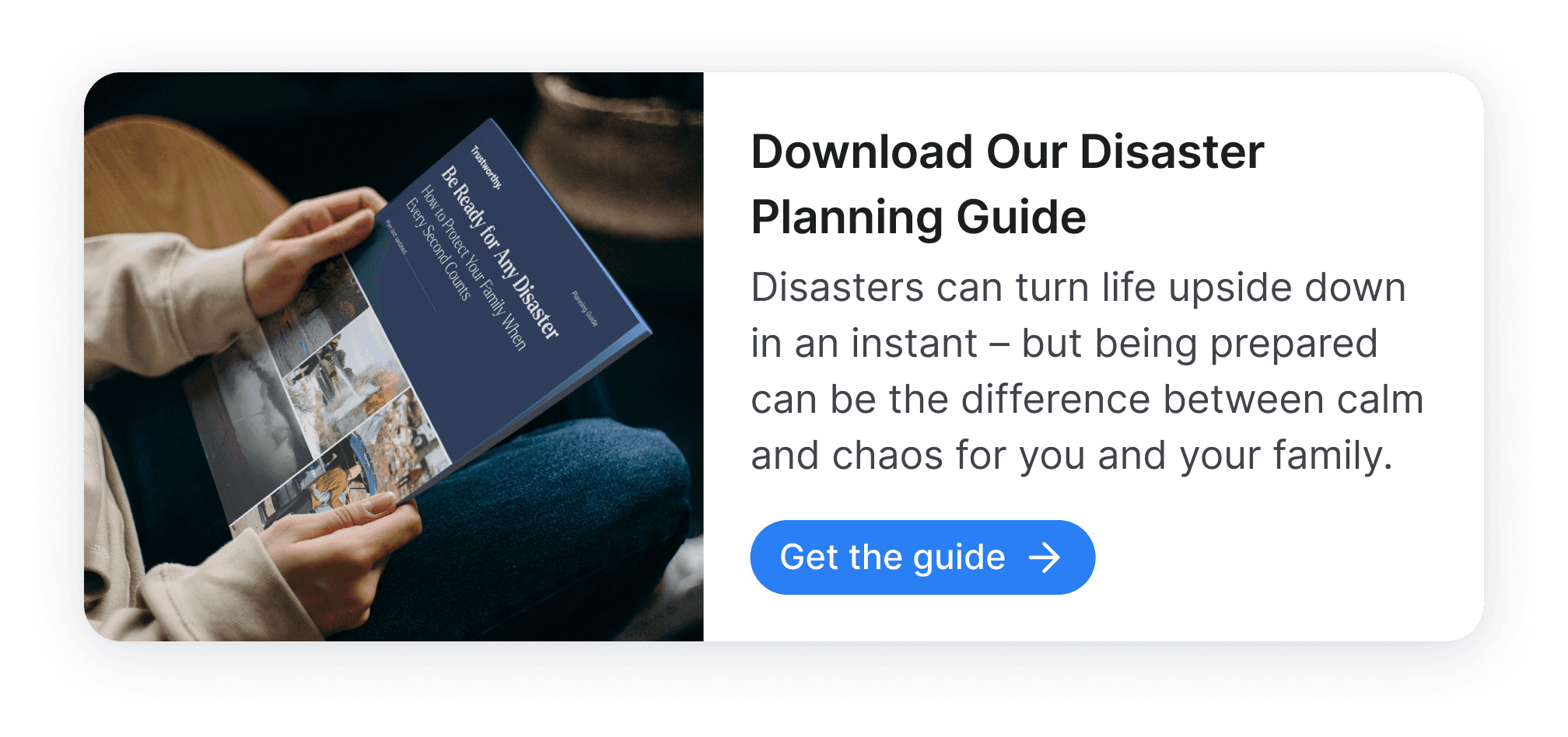
Key Takeaways
In emergencies, hospitals may be crowded, pharmacies overwhelmed, and clinics without power, making immediate access to prescriptions, allergies, and medical histories critical for saving time and in some cases lives.
Essential medical records include prescription lists with dosages, allergy information (food/drug/environmental), immunization records especially for children, health insurance cards and policy numbers, and advance directives or medical powers of attorney.
Many medical offices and pharmacies rely on paper files or localized digital systems that become inaccessible if clinics flood or lose power, and evacuations separate families from usual providers forcing care in new locations.
Without medical information available, providers may not know about pre-existing conditions, drug interactions, or necessary treatments, and patients may be given wrong medications or dosages, face delays in care, or even denial of services.
Families should keep digital copies of essential medical documents, and platforms like Trustworthy allow accessing records from anywhere whether at shelters, hospitals, or temporary housing during displacement.
In the aftermath of a natural disaster, healthcare can become unpredictable. Hospitals may be overwhelmed, and families may find themselves far from their regular doctors and their pharmacies.
In these situations, having quick access to your medical records — including prescriptions and insurance cards — can mean the difference between timely treatment and dangerous delays.
This article explores why medical records matter in a crisis, which documents to safeguard, and how to make sure the right people can access them when it matters most.

When Medical Records Are Essential in Disasters
Q: Why do medical records matter during emergencies?
A: In an emergency, medical providers often operate under strained conditions.
Hospitals may be crowded, pharmacies overwhelmed, and clinics without power.

Having immediate access to prescriptions, allergies, or medical histories can save critical time and, in some cases, lives. Without this information, providers may not know about pre-existing conditions, drug interactions, or necessary treatments.
Q: What specific medical records should families protect?
A: The most important records include:
Prescription lists and dosage instructions.
Allergy information, including food, drug, or environmental allergies.
Immunization records, especially for children.
Health insurance cards and policy numbers.
Advance directives or medical powers of attorney, which guide care decisions.
Recent medical histories, particularly for those with chronic conditions.
Having these documents available can ensure care isn’t delayed or compromised.
The Challenges of Accessing Medical Records
Q: What makes it difficult to access records during disasters?
A: Many medical offices and pharmacies still rely on paper files or localized digital systems. If a clinic floods or loses power, those records may be inaccessible.
Evacuations can also separate families from their usual providers, forcing them to seek care in new locations where staff have no prior knowledge of their history.

Q: What are the risks of not having medical information available?
A: The risks range from inconvenient to life-threatening.
Patients may be given the wrong medication or the wrong dosage. Vaccination records may be required for children entering temporary schools or shelters.
Without insurance details, families may face delays in care or even denial of services.
Q: How can families prepare?
A: Families should keep digital copies of essential medical documents. A waterproof folder can protect paper copies, but organizing digital versions ensures families can access important information even if paper copies are damaged or lost.
Digitizing Medical Records for Emergencies
Q: How can digital storage help in medical crises?
A: Digital copies ensure that even if paper records are destroyed, the information survives.
Digital vaults allow families to access records from anywhere, whether at a shelter, a hospital in another city, or even abroad. Digital access also makes it easier to share documents securely with providers or caregivers.
Q: Where does Trustworthy fit into medical preparedness?
A: A digital vault like Trustworthy’s Family Operating System® allows families to store sensitive health information in an encrypted, organized system. Parents can keep their children’s immunizations, prescriptions, and allergy notes in one place.
Elderly relatives can ensure caregivers have access to advance directives. Trustworthy’s cross-device access means critical health information is always available when you need it most.

Q: Who should have access to family medical records?
A: Access depends on family circumstances. Parents may want to share pediatric records with babysitters or schools. Adult children may need access to elderly parents’ health details.
Digital vaults like Trustworthy make it possible to assign different permissions, ensuring that each person only sees the records they need to act responsibly in an emergency.
Building a Safer Health Plan
Q: How do medical records fit into broader disaster planning?
A: Just as families create evacuation plans or stock emergency kits, organizing medical records should be part of preparedness. Regularly updating digital files, checking prescription lists, and ensuring access for trusted people reduces stress when disaster hits.

Q: How does preparedness affect emotional well-being?
A: Disasters are already stressful. Scrambling to remember medication names or find insurance details only adds to the chaos. Families who know their medical records are secure and accessible can focus on safety and care instead of paperwork.
The Bottom Line
In times of crisis, medical records can be as important as food or shelter. Families who prepare their health information in advance ensure that treatment is accurate, timely, and accessible even under the worst conditions.
Paper copies may have their place, but they can be lost or destroyed. That’s why a secure digital system like Trustworthy is invaluable.
With private and secure storage and custom sharing, Trustworthy ensures your medical details are always available — even if a disaster disrupts normal routines.
We’d love to hear from you! Feel free to email us with any questions, comments, or suggestions for future article topics.













